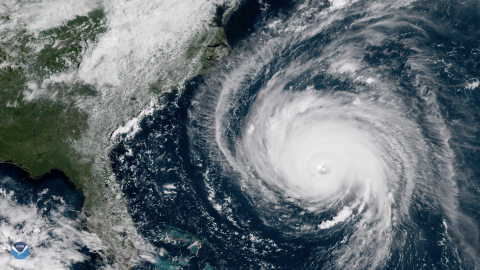Various planning updates are underway on Georgia's coast: the comprehensive plans for Chatham County and its cities, the Coastal Regional Plan, and the Jekyll Island Master Plan. Coastal plans must address the increasingly urgent causes and consequences of climate change to achieve community and regional planning benefits in making critical decisions that influence our future.

Over the past five years, climate disruption's dangerous impacts and causes have stirred well-founded public awareness and concern. Our rapidly growing understanding of the scale and significance of the causes of climate change and their grave consequences will be renowned as the fundamental "paradigm shift" of the 21st century.
Surveys consistently conclude that a majority now recognize that human activities are causing worldwide environmental degradation, which is of such urgency and magnitude that we must soon bring them under control or irreversibly impair the planet's life-support systems. Yet, until now, decades after these perils were well-known within the global scientific community, the plans of coastal Georgia's cities and counties have made little or no mention of climate change.
The only references to climate disruption in Georgia's coastal plans have concerned the rising sea level. These were limited to reactive adaptation, such as flood-control projects and flood-risk rating compliance. They were also all based on historical events, rather than the escalating science-based projections linked to global heating.
The current planning updates for coastal communities must acknowledge the urgency and acceleration of these hazards.
Moreover, planning must prioritize actions that reduce the cause of these accumulating hazards – namely, the emission of greenhouse gases – and protection of critical areas, both developed and natural, to the greatest extent possible. The alarming fact that some 43 percent of coastal Georgia residences are within the 100-year flood plain substantiates concern about escalating flooding.
Overdue recognition of climate-change impacts and causes in local and regional plans will have a critical advantage in an array of decision-making.
Furthermore, incorporating these considerations in planning documents, better positions our region in competition for imminent federal funding to support climate-related projects. Examples include flood-control infrastructure, clean-energy implementation, and power-transmission grid upgrades.
...continue reading "Timely advice to the planning authorities in coastal Georgia"
